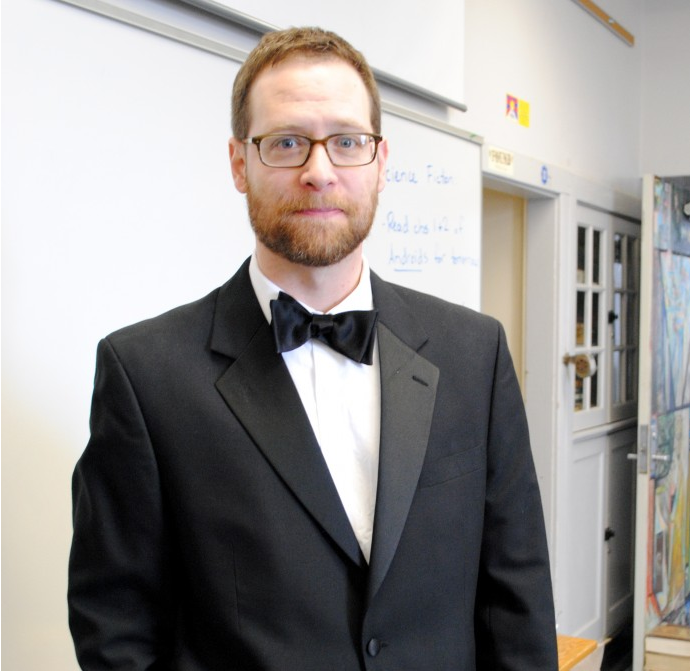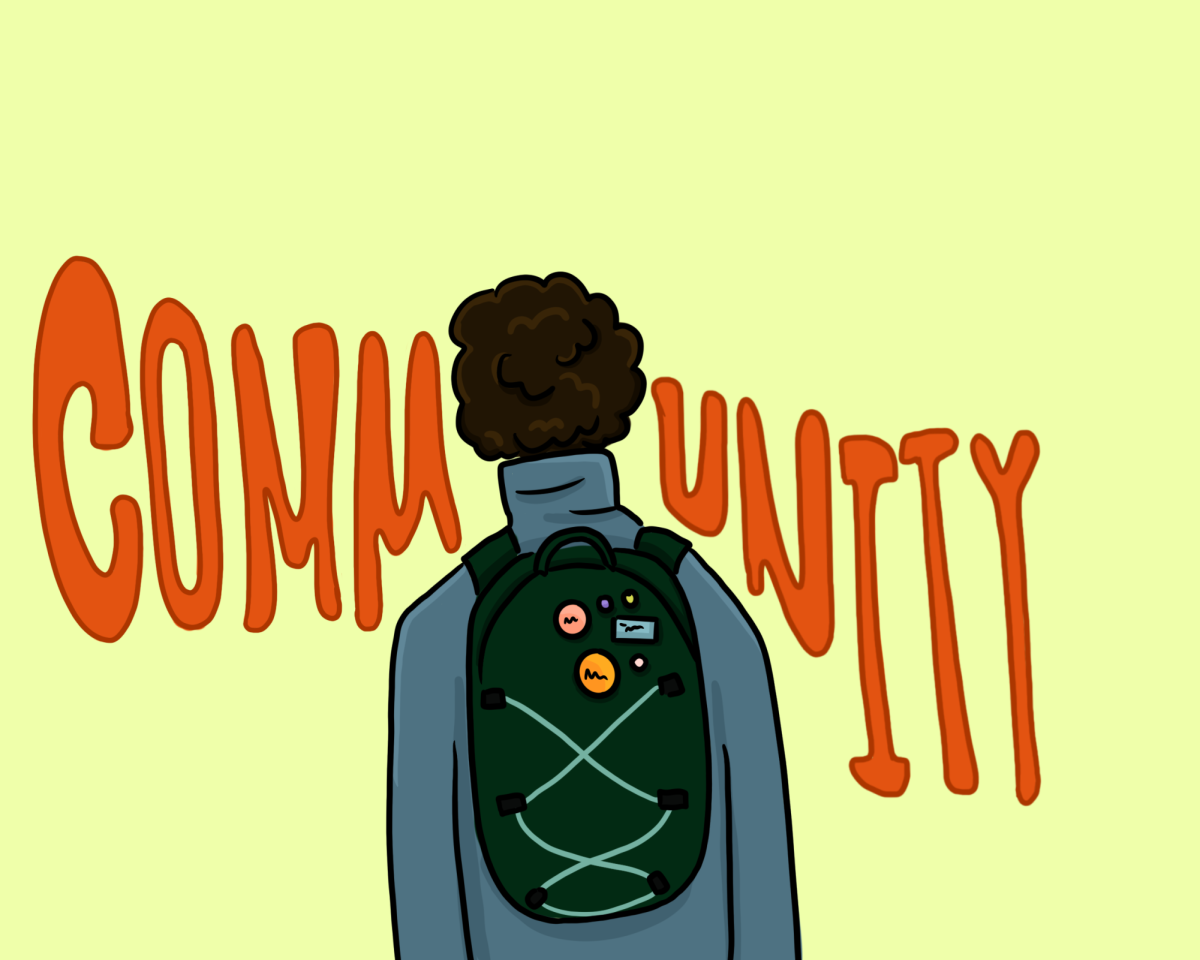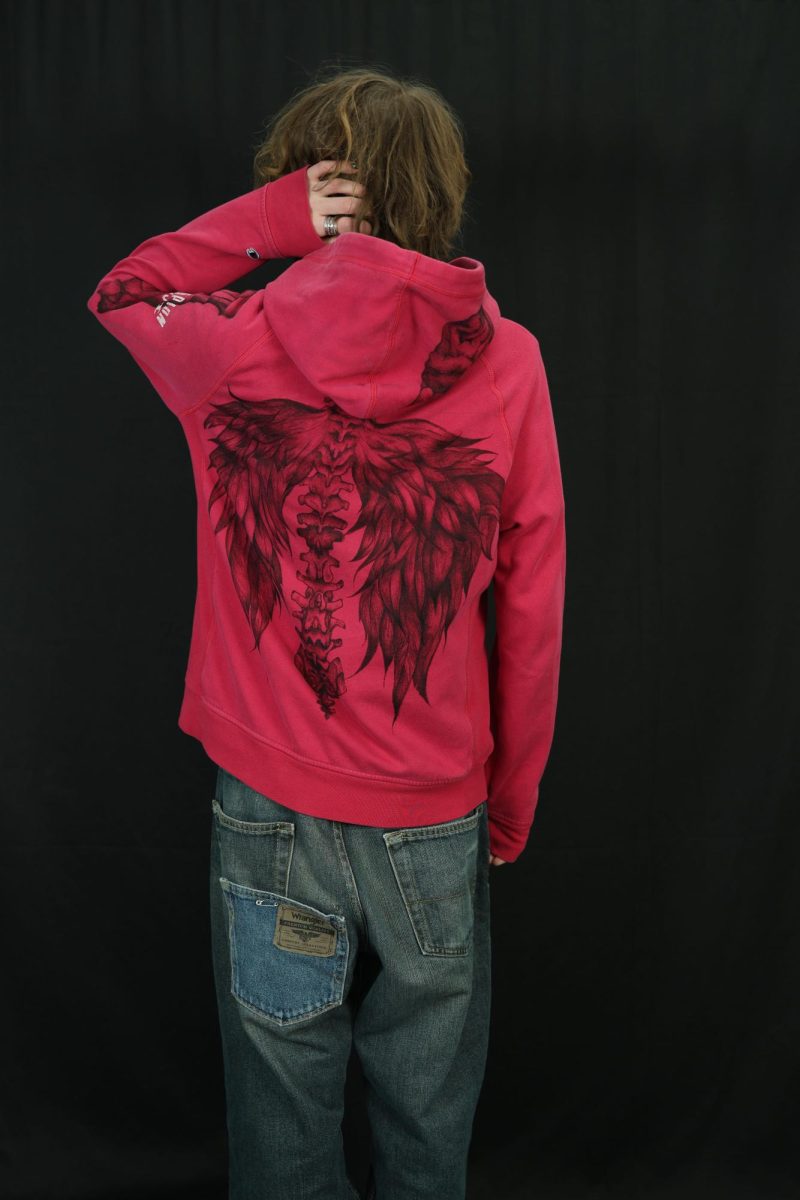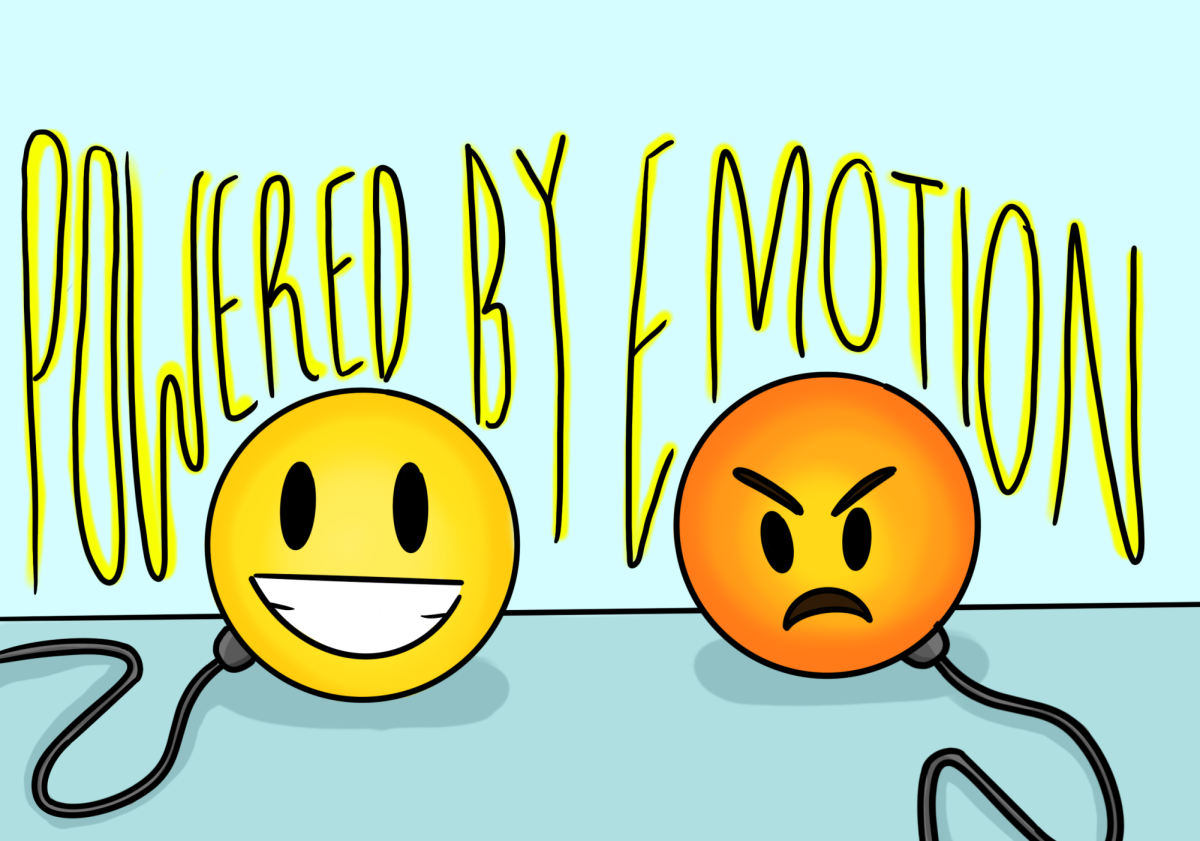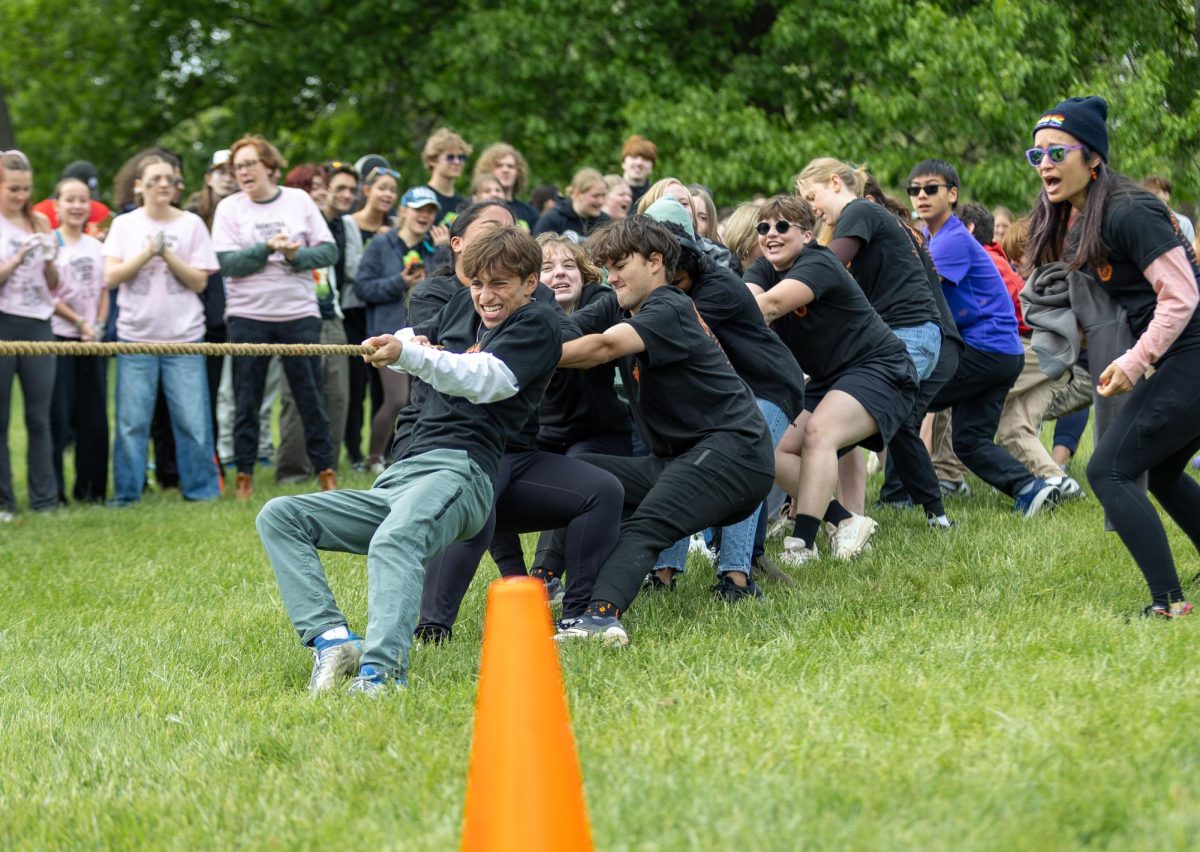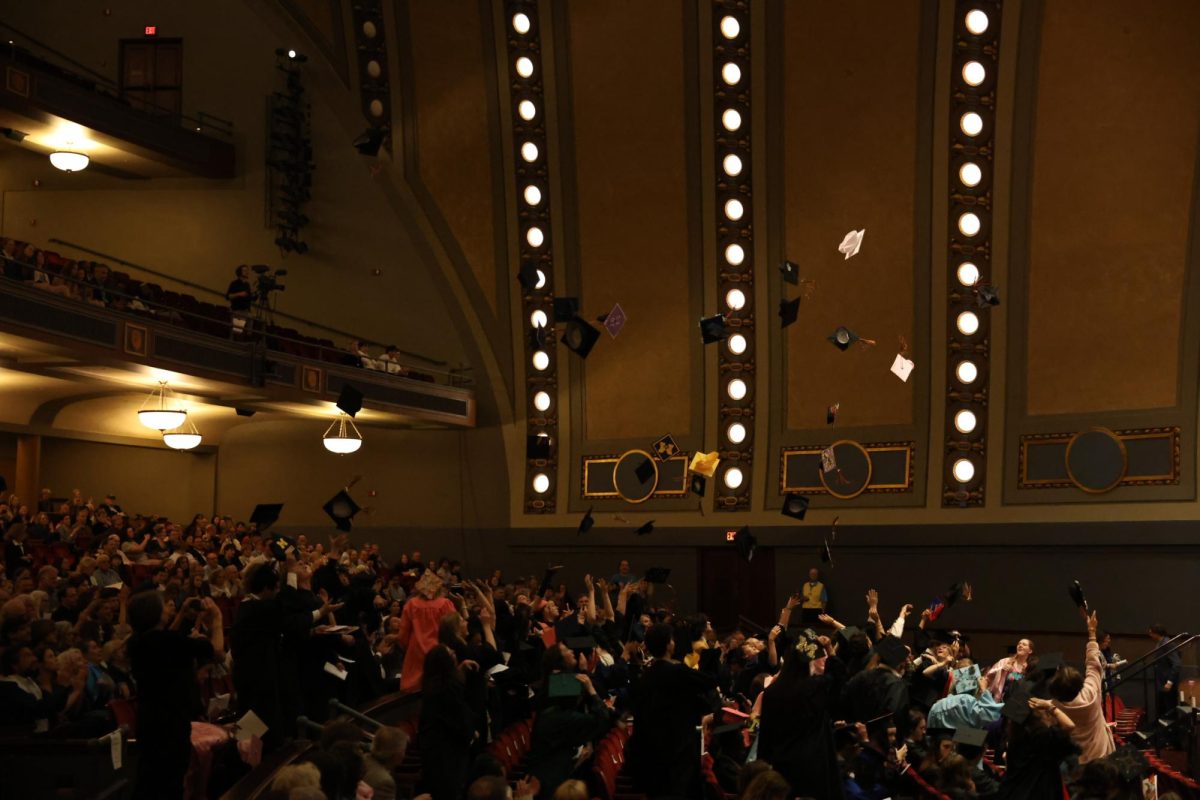It was 2010. Community High School English teacher Ken McGraw was in for a CT scan when he was told he had enlarged lymph nodes. After receiving this news, he was sent in for a biopsy that revealed that he had follicular lymphoma cancer. It was a type of cancer that grew slowly, which meant McGraw could go about his everyday life without needing to have treatment.“[I was] living a normal life except for the fact I had this secret. It was a little bit like being in the closet,” he said. McGraw didn’t “come out of the closet” to everyone, aside from his immediate family, until he began to get really bad stomach aches because the lymph nodes were pressing in the wrong spot. Then, he knew it was time to seek treatment.

McGraw took off a semester of teaching at CHS in order to treat his cancer. He did not have normal radiation, which may cause cancer patients to lose their hair or suffer in other ways. Rather, he participated in a trial at the University of Michigan that was testing a new drug they had created themselves. After taking a semester off and spending months feeling weak in bed, McGraw recovered and went back to work. Upon returning to work, he had to give up his “public persona of a healthy guy.” Having cancer didn’t necessarily affect his relationship with students and colleagues, but it affected how he felt.
“Maybe it didn’t affect them, but it definitely had an effect on me in that, for those two years when I was on the watch and wait program I could come here and pretend I didn’t have cancer,” he said, “so, I could come here and be a strong healthy person, whom no one would suspect had cancer and it was nice to live that fiction.” Now Mcgraw has combined these two visions of himself. He is a strong healthy guy with an incurable disease.
Being a cancer victim has given McGraw a different perspective on his job at CHS. Coming back to Community high school has been a major reward in his life.
“A lot of people want to escape their work and want a holiday from their work, but not me, I am glad to be here,” he said. For McGraw, staying home is far from a holiday. In fact, work is his holiday. He is very thankful for Community, “the center of his universe.”
McGraw has spent a lot of his life waiting for the next moment. He waits for the morning to be over so he can do what he wants to do in the afternoon. Now, in remission, McGraw understands that each morning is the only morning he will have on that day.
“I was wishing that I were not in the moment that I was in,” he said. “I really cherish my moments more than I used to. Because we have a pretty finite number of moments. Life is short and quick and I am really glad to be here.”
Rose Henkin
Just a third grader, Rose Henkin was given the news that her mother had breast cancer. Luckily, it was in the early stages and doctors were able to catch it. Henkin was confused about the effects cancer could have on her mother.
“I didn’t exactly get that she could die from it,” she said. “I just remember thinking or wondering why it had to be her and I was like, ‘Why can’t it just be the neighbors across the street?” she said. Henkin had many people (aunts, uncles, friends) come stay with her while her father spent time in the hospital with her mother. Her friends and family that would stay with her provided a distraction to the seriousness of the situation.
Her mother’s experience has changed some of Henkin’s views.
“I don’t worry as much. It just makes me know that it could be a lot worse,” she said. “So, I try to find the best in things.”
Although she has gained sympathy and empathy towards other children whose parents have suffered from cancer, Henkin cannot imagine a life without her mother.
This will be the ninth Thanksgiving holiday Henkin’s mother has been in remission and Henkin is thankful for that.
“We are together every year and it’s still one more year that’s still the same,” she said.
Liz Stern
In 2006 when she was forty-six years old, CHS teacher, Liz Stern was diagnosed with a non-malignant, non-invasive form of breast cancer. It was a form of cancer that 99.9 percent of people recover from with surgery. Stern went through surgery, recovered and took time off.
After taking time off Stern eased back into teaching and soon worked full time. Six or seven months later she went back for testing and screening; in the reconstruction doctors found an invasive form of the cancer.
“So, the .1% was me,” she said. Fortunately, Stern had insisted on getting a specific type of treatment which led Doctors to find a small form of cancer. She had to go through more surgery, chemotherapy and radiation. Throughout her treatment, Stern had tremendous support from her colleagues. “They were wonderful,” she said, “just wonderful.”
It’s been almost five years since her last treatment. Although having cancer may not have changed Stern’s views on what she is thankful for, it has given her a different outlook on how life works. For Stern the one thing that really changed was she was a health 46 year old going on with life without thinking about surgeries and medical treatments and all of the sudden shw saw the edge.
“We are all going along and it’s like we are on this big huge plan. When you start off you are right in the center and you don’t know there is an edge and as you get older you start to perceive there is an edge on the horizon but it’s so far away that you are not gonna get there for a really long time. And when you get cancer you are suddenly right at the edge and you know it’s there and even if things go well and you get to move away from it you are suddenly aware that for the rest of your life how close the edge can be,” she said.
Stern feels that knowing how close that edge can be had changed how she approaches the choices she makes. After having cancer she has found a deeper meaning in decision making. She know she will not have an unlimited number of chances to make a choice. Therefore, when she makes a choice she makes sure to be away of which is more meaningful to her.



